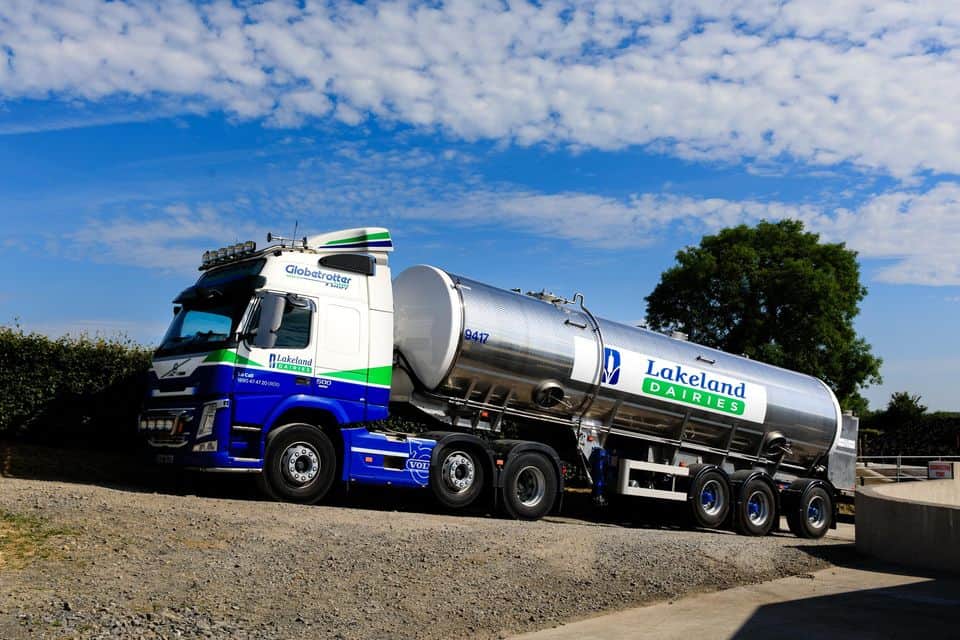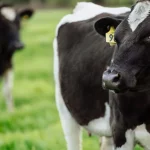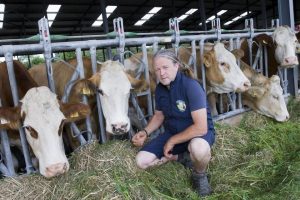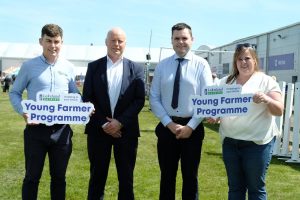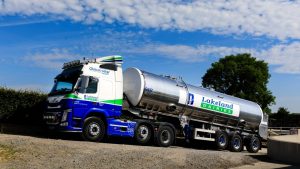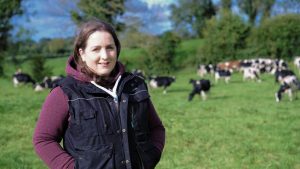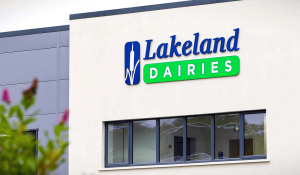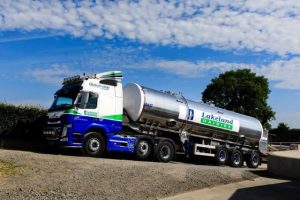
Lakeland Dairies has launched a farm sustainability strategy with a 0.5c/L and 0.5p/L payment to support farmers in carrying out sustainability actions.
The strategy, focusses on rewarding Lakeland Dairies’ 3,200 suppliers for taking positive actions on their farms through a new three-year Sustainability Incentive Payment.
The payment is open to all of the co-op’s farmers and the payment will be made for milk supplied from January 1, 2024.
The incentive payment will run from 2024 to 2026 and is aimed at supporting suppliers in reducing the carbon footprint of their dairy enterprise, while delivering benefits for water quality, biodiversity, soil health and animal welfare.
Applications are made via the farmer portal on www.lakelanddairies.com. Applications must be submitted by Friday, December 15, 2023.
Commenting, Lakeland Dairies chairperson, Niall Matthews, said the co-op is committed to exploring new avenues of innovation.
“The success of the co-operative movement is rooted in sustainability. Long term prosperity for dairy farm families is at the core of everything we do at Lakeland Dairies,” he said.
“Our farmers have already shown tremendous leadership in adopting new technologies and practices to improve their environmental sustainability. We are now stepping up our ambition.”
In the Republic, to qualify for the 0.5c/L (including VAT and at 3.3pc protein and 3.6pc fat) payment, farmers must complete five measures from a list of twelve measures listed as follows.
- Age at first calving – 80pc of heifers calving before 26 months.
- Dairy Beef Index (DBI) – Minimum DBI across beef bull team of €120.
- Development of a water quality plan – Development of a water quality plan in conjunction with an ASSAP advisor.
- Diverse membership – Add a family member or partner to the shareholding. This person’s name must be on the associated herd number and milk account.
- Economic Breeding Index (EBI) – €10 EBI increase per year. Automatic qualification if farm is in the top 20pc of Lakeland herds.
- Genomic testing – Genomic testing all breeding heifer calves.
- Milk recording – Minimum of four milk recordings per year.
- Nutrient management planning – Produce an up to date nutrient management plan including soil samples taken within the last two years.
- Planting of hedgerows or trees – 10 trees or 5m of hedgerow per 100,000L of milk supplied in previous year.
- Protected urea – 0.5t protected urea purchased per 100,000L of milk supplied in the previous calendar year.
- Sexed semen – 25pc of dairy straws sexed.
- Somatic Cell Count (SCC) – 5pc reduction per year, under 150,000 cells/ml automatically qualifies for payment.
In Northern Ireland, to qualify for the 0.5p/L payment, farmers must complete four measures from the nine measures listed below.
- AgreCalc audit (mandatory) – Commit to completing a carbon audit and share data with the co-op.
- Diverse membership – Add a family member or partner to the shareholding. This person’s name must be on the associated herd number and milk account.
- Genomic testing – Genomic testing all breeding heifer calves.
- Milk recording – Minimum of four milk recordings per year.
- Nutrient management planning – Produce an up to date nutrient management plan using soil sample results from the Soil Nutrient Health Scheme.
- Planting of hedgerows or trees – 10 trees or 5m of hedgerow per 100,000L of milk supplied in previous year.
- Protected urea – 0.5t protected urea purchased per 100,000L of milk supplied in the previous calendar year.
- Sexed semen – 25pc of dairy straws sexed.
- Somatic Cell Count (SCC) – 5pc reduction per year, under 150,000 cells/ml automatically qualifies for payment.
General Manager of Lakeland Dairies Member Relations, Eamon Duignan, said that adopting sustainable measures at farm level is a critical part of safeguarding dairy farms for future generations.
“We will work collectively and collaboratively with our farmers on this journey,” he said.
